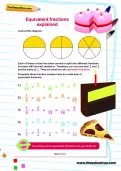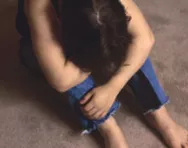Important update from TheSchoolRun
For the past 13 years, TheSchoolRun has been run by a small team of mums working from home, dedicated to providing quality educational resources to primary school parents. Unfortunately, rising supplier costs and falling revenue have made it impossible for us to continue operating, and we’ve had to make the difficult decision to close. The good news: We’ve arranged for another educational provider to take over many of our resources. These will be hosted on a new portal, where the content will be updated and expanded to support your child’s learning.
What this means for subscribers:
- Your subscription is still active, and for now, you can keep using the website as normal — just log in with your usual details to access all our articles and resources*.
- In a few months, all resources will move to the new portal. You’ll continue to have access there until your subscription ends. We’ll send you full details nearer the time.
- As a thank you for your support, we’ll also be sending you 16 primary school eBooks (worth £108.84) to download and keep.
A few changes to be aware of:
- The Learning Journey weekly email has ended, but your child’s plan will still be updated on your dashboard each Monday. Just log in to see the recommended worksheets.
- The 11+ weekly emails have now ended. We sent you all the remaining emails in the series at the end of March — please check your inbox (and spam folder) if you haven’t seen them. You can also follow the full programme here: 11+ Learning Journey.
If you have any questions, please contact us at [email protected]. Thank you for being part of our journey it’s been a privilege to support your family’s learning.
*If you need to reset your password, it will still work as usual. Please check your spam folder if the reset email doesn’t appear in your inbox.
Ofsted inspections explained for parents

Every teacher dreads getting the call to say that the Ofsted inspectors are coming, but regular inspections are an important part of making sure that schools are providing children with a good education – and as a parent, the reports can be a vital source of information about your child’s school.


Start a unique learning programme!
- Weekly programme for each school year
- Worksheets sent direct to your inbox
- Keeps your child's learning on track
There's no doubt that inspection reports are an important factor when parents choose a school for their children – the second most important factor (50%) after proximity to home (61%), according to Ofsted’s 2017 survey of parents.
Which schools are inspected by Ofsted?
All state-maintained schools in England are inspected by Ofsted. This includes local authority-run schools, academies and free schools, as well as non-maintained special schools, pupil referral units and further education/sixth form colleges.
Ofsted also inspects independent schools that are not associated with one of the independent schools inspectorates, such as ISEB.
In Scotland, schools are inspected by Education Scotland; in Wales, by Estyn; and in Northern Ireland by the Education Training Inspectorate (ETI).
How often are schools inspected?
The frequency of inspection is determined by how good a school is.
Schools rated Outstanding were once exempt from 'full inspections' (usually lasting two days) unless concerns arose about their performance. This exemption has since been lifted and Outstanding schools will be inspected approximately every four years.
Good schools usually have a short inspection every four years, although they may have a full inspection if concerns arise about their performance, or if they've undergone significant change.
Short inspections can't change the existing rating of a school. If the inspectors believe its rating should change – upwards or downwards – the short inspection will be converted to a full inspection.
Schools that are rated Requires Improvement usually have a full re-inspection within 30 months.
Inadequate schools will have their inspection schedule individually agreed with Ofsted. This usually involves regular monitoring, alongside support to improve their rating.
How much notice do schools get?
Normally, schools get one working day's notice of an inspection, but Ofsted has the power to go into schools without any notice if it considers it necessary.
This could be if they have received serious concerns about a school, such as a safeguarding issue, possibly from a parent.
What happens during an inspection?
The number of inspectors visiting a school varies depending on the size and type of a school, but the team will include Her Majesty’s Inspectors (HMI) and/or contracted Ofsted inspectors – normally practising headteachers and deputy heads.
Before the inspection, the inspectors gather information about the school by reading the previous Ofsted report, reports of any interim monitoring, any complaints that have been raised about the school, academic data, information about funding, and information from the school’s website.
They also send a letter to parents inviting them to share their opinions about the school on Ofsted’s Parent View website. It's important that as many parents as possible complete the survey to have their views of the school taken into account.
During the inspection, inspectors will observe lessons, check records and gather a range of evidence to inform their judgements, including speaking to staff, governors, pupils and parents and scrutinising pupils’ work.
Inspectors also sit in on lessons, look through children’s books and folders and talk to them about not just their understanding, but also how engaged they are in their learning, and about other issues like behaviour and bullying.
What are the inspectors looking at?
Ofsted inspectors look at four main areas:
- Quality of education
- Behaviour and attitudes
- Personal development of pupils
- Leadership
The new Ofsted framework puts less emphasis on test results than previous inspections did.
There will be a greater focus on how schools foster pupils’ broader development, including character, citizenship and resilience.
They will also look at how schools manage behaviour, including low-level disruption and bullying.
'We hope schools will no longer feel the need to generate and analyse masses of internal data for inspection,' says Ofsted Chief Inspector Amanda Spielman.
'Instead, we want them to spend their time teaching and making a real difference to children’s lives, which is why they entered the profession in the first place.'
How quickly do schools get the results?
Most schools get a draft copy of the report soon after the inspection.
They have the opportunity for them to check it for factual accuracy and make any comments before it’s published.
The final report is then usually sent to the school within 10 days, and published on Ofsted’s website within 15 days, although if a school is judged Inadequate, this can take up to 28 days to allow extra moderation.
What are the possible outcomes?
Schools receive a judgement for each of the four inspection areas, and an overall judgement. There are four numerical grades:
- 1: Outstanding
- 2: Good
- 3: Requires Improvement
- 4: Inadequate
In the academic year 2018-2019, 85 per cent of schools were rated Outstanding or Good.
What happens if a school is rated Inadequate?
Inadequate schools are monitored and are subject to more frequent inspection. There's no fixed timetable for inspections, but they will normally have a full inspection within 30 months.
They are also obliged to convert to academies, which gives officials more power to intervene.
The schools with the most serious failings may be put into special measures.
They're given an action plan for improvement detailing the areas they must address, and are subject to regular monitoring and inspection by Her Majesty's Inspectors (HMI), usually every term.
Schools are not on their own in tackling their failings. They usually receive extra support, in the form of funding and/or expert guidance from external consultants (sometimes known as 'super heads').
Once HMI believes a school has completed its action plan, they will request another full inspection by Ofsted, and if all areas of concern have been addressed, the school will be removed from special measures.








